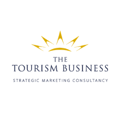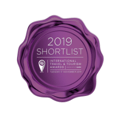VAC 2020 VIRTUAL: Digital Visitor’s Roundup

The first online Visitor Attraction Conference has just wrapped up, and I can firmly say it was a great success. The two-day conference was full of invaluable insight that we use to ensure that we provide best-in-class marketing for our clients, but if you missed on attending, then don’t worry I have put together what I feel are this year’s top takeaways.
We aren’t in a ‘Post-COVID world’
Obviously, a key topic across every talk this year was COVID-19. Coronavirus has had a devastating effect on our industry and naturally, we have wanted to be positive about things getting better sooner rather than later.
Most of the talks at VAC this year weren’t as optimistic and highlighted that COVID isn’t going anywhere anytime soon. We need to stop talking about ‘a Post-COVID world’ as it is premature, and we won’t have one until we have a globally accessible vaccine, so instead, we will just adapt, rebuild and optimise. We’ve been hit very hard before, but the sector has incredible resilience, so we will get through this.
Maximise your digital channels
During lockdown, digital channels have been integral for tourism businesses to excite and entice their audiences with engaging content on their social media. The sudden shift into becoming a content production business on top of running an attraction was a learning curve, but for some, it reaped massive benefits.
When lockdown began to lift, new domestic visitors to attractions were listing that it was, in fact, their social activity and presence that encouraged them to visit. This was especially true for attractions that ‘love-bombed’ and targeted local audiences through paid social advertising, which has been a key driver for ticket sales.
It isn’t just the domestic audience that has been responding to this boost of online content. Recreating The Chelsea Flower Show a Digital Experience was a large undertaking for the Royal Horticulture Society, but after it’s launch it streamed in over 120 countries worldwide and created newly engaged international audience that will have the UK front of mind, once travel opens up again.
Invest in your website and digital booking
Digital booking has been a key challenge for many visitor attractions, especially those that had a large reliance on visitors who would spontaneously visit them without pre-booking. For example, Castle Howard has shown a 75% increase in online ticket sales since lockdown, which means that your website and your booking process are more important than ever.
Kelly Molson from Rubber Cheese ran a great talk on improving your website’s journey and making sure that your booking process follows the ‘3 click rule’. She suggested these 5 tips to success:
- Make the buy button easy to find – make it stand out in a bold colour and have in the top right corner of your page, where customers expect it to be.
- Streamline the booking journey – Make the process as easy as possible. Remove all distractions and have clear labels that show progress and where to get help if you need it.
- Improve your website’s speed – If a page takes too long to load, people will give up. So make sure to improve your speed by optimising your image size with tools like Tiny PNG.
- Consider a chatbot – Though not for everyone, 63% of people said they would use a chatbot to obtain answers to their queries if it meant they got to their answer quickly, so it’s something to consider.
- Focus on offers that add value – People are more likely to buy when they are already buying something else, so use the booking experience as a way to upsell offers that are tailored to that specific activity to boost revenue.
Reach new audiences and opportunities
2020 was already set to be the year of the staycation, but quite how much that was going to be true, no one could have predicted. 97% of visitors are coming from a domestic audience, and although many businesses, especially those in London, rely on international visitors there are still key audiences that can fill capacities.
Jon Young from BVA-BDRC ran down some of the new audiences and opportunities for visitor attractions:
- Rescuing the home worker – Remote working has broken down the traditional office hours, so it means that a lot of people are more flexible with how they spend their leisure time. As they are no longer commuting, people are also spending increased time in their local areas and want to explore what’s available – reach out to them.
- Locking the locals – It’s not just would-be-commuters that are looking more locally. The fact that many people are nervous about trips further away there is a unique opportunity of creating a new hyper loyal audience.
- Private and premium – A small but not insignificant population (10%) are financially better as a result of the pandemic. Though many will be looking for good value, this group can be targeted by premium experiences such as small private group tours of 6 or less to create an added sense of safety.
- Life goes on – As mentioned in our COVID segments article, in mid-August 39% of the UK population were over the pandemic, and just wanted things back to normal. This audience is typically younger, especially those with families, and respond strongly to messaging from brands that emphasise the experience they will receive, not how COVID safe they will be.
Sanitise your site, not your communications.
One thing that was stressed repeatedly throughout the conference, is that people are returning to attractions because they want to experience things with friends and family more than ever. Attractions create the backdrop for peoples happiest memories, and your advertising should focus on that as the primary message.
Overall people’s enjoyment of attractions has decreased due to safety measures, but still, people are willing to recommend attractions at the same level. New visitors are increasingly being swayed by word of mouth this year, so make sure to ask for and implement feedback and use reviews as a powerful tool to create reassurance and encourage people to visit.
Empower your front of house staff
Your front of house staff have always been one of the most important aspects of a visitor’s experience, in fact, on TripAdvisor, a 5-star review is 4 times more likely to mention a positive interaction with a member of staff. Their importance has dramatically increased in recent times as they are the ones that welcome, reassure and protect potentially nervous guests.
Digital and pre-booked tickets can also provide an opportunity for you to train front of house staff in skills outside of purely selling tickets; Castle Howard, for example, has shown great success in encouraging teams to up-sell membership at the box office when scanning digital tickets.
Use digital tools to improve your experience
Studies have shown that visitors are becoming more unforgiving on safety measures that are deemed ‘over the top’ if it dampens the experience they were expecting. So, it’s important to conduct a review and see what you can safely open and for aspects that would be unsafe to do so, use digital to help.
Castle Howard underwent a huge project and installed WiFi into the site, so they could develop a Digital Guide that streamed straight to peoples phones and have the same tour experience they normally would. Similarly, Blackpool Pleasure Beach developed an e-guide as well as a new e-ticketing system which allowed guests to plan their day by keeping track of wait times, as well as pre-book food.
Technology isn’t always the answer, and you should always focus on training teams with any new tools you implement, as some guests may have difficulty and will need help from staff. Gulliver’s world found that digital queuing wasn’t proving effective to encourage social distancing, so instead, they invested in new character distancing marshals to treat staying apart more like a game to get children on-board.
Diversify your revenue streams
As we are going into a typically quieter period, it is good to think of strategies that will help your business through the winter. Christmas will provide a great opportunity for many, but it’s important to not just focus on a 2-week period that will be hyper-competitive, and instead, you should think about your entire Autumn Winter strategy.
Anthony, our CEO at Digital Visitor, says thinking of yourself as an e-commerce business is a great way to come up with alternative streams of revenue. If you could only be based online, what would your attraction sell? Castle Howard for example created partnerships with the local farm shop to improve their sales offering and the National Marine Aquarium developed an education product to sell to schools who are reluctant to visit at the moment.
I hope that this quick run-down has been useful, and for any further information on anything I’ve mentioned or advice on how to implement them into your marketing activity, please drop me a message.
Jamie is Digital Visitor's Marketing Manager and oversees our messaging and content. If you are interested in knowing more about anything covered in this blog, or would like to see more on a certain topic please drop them an email.










